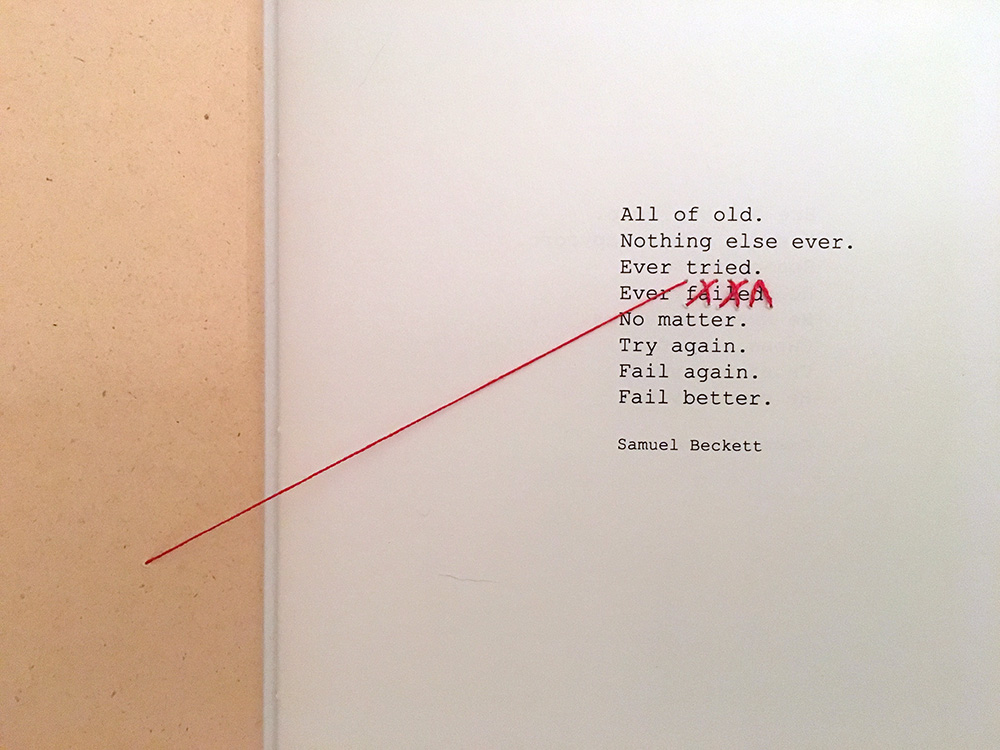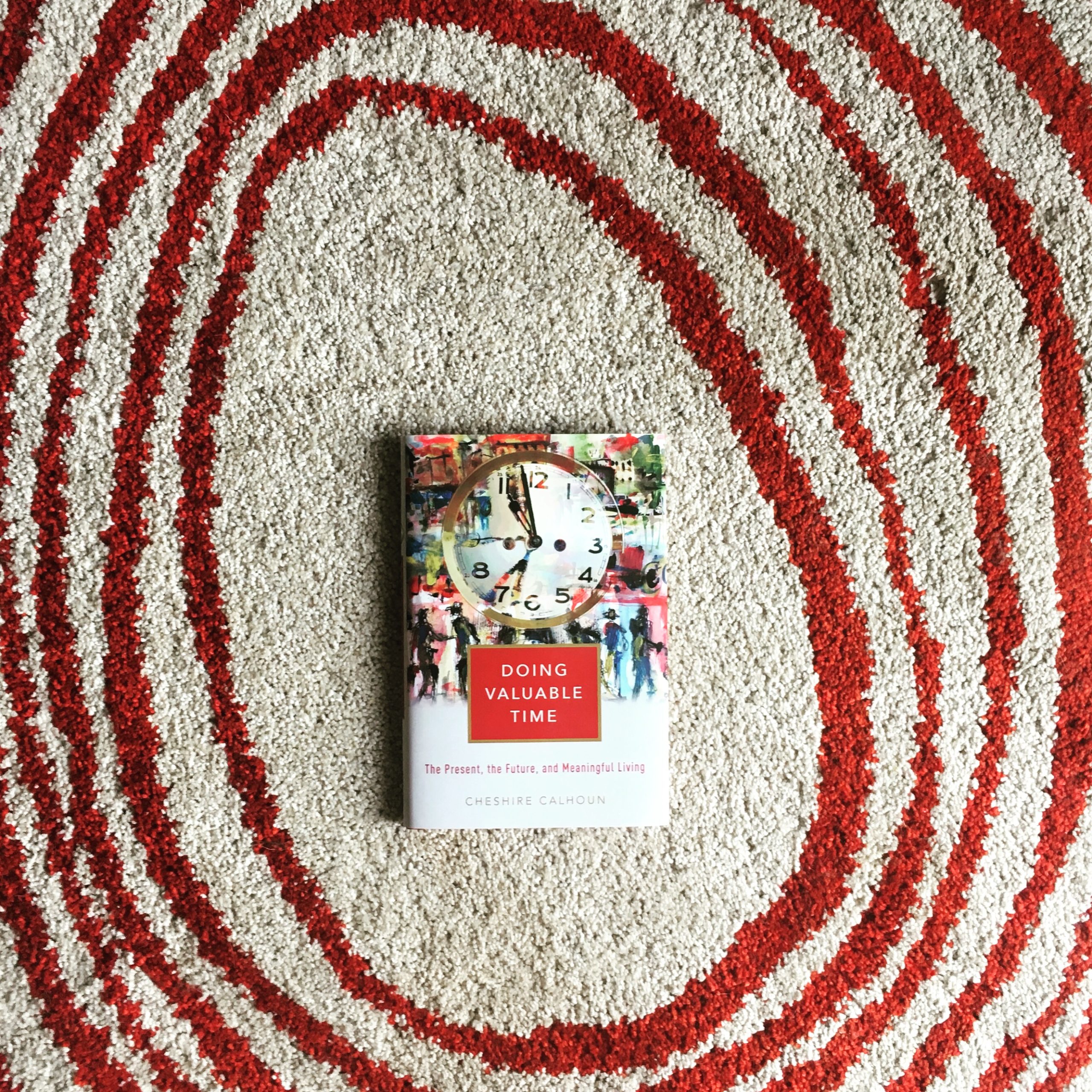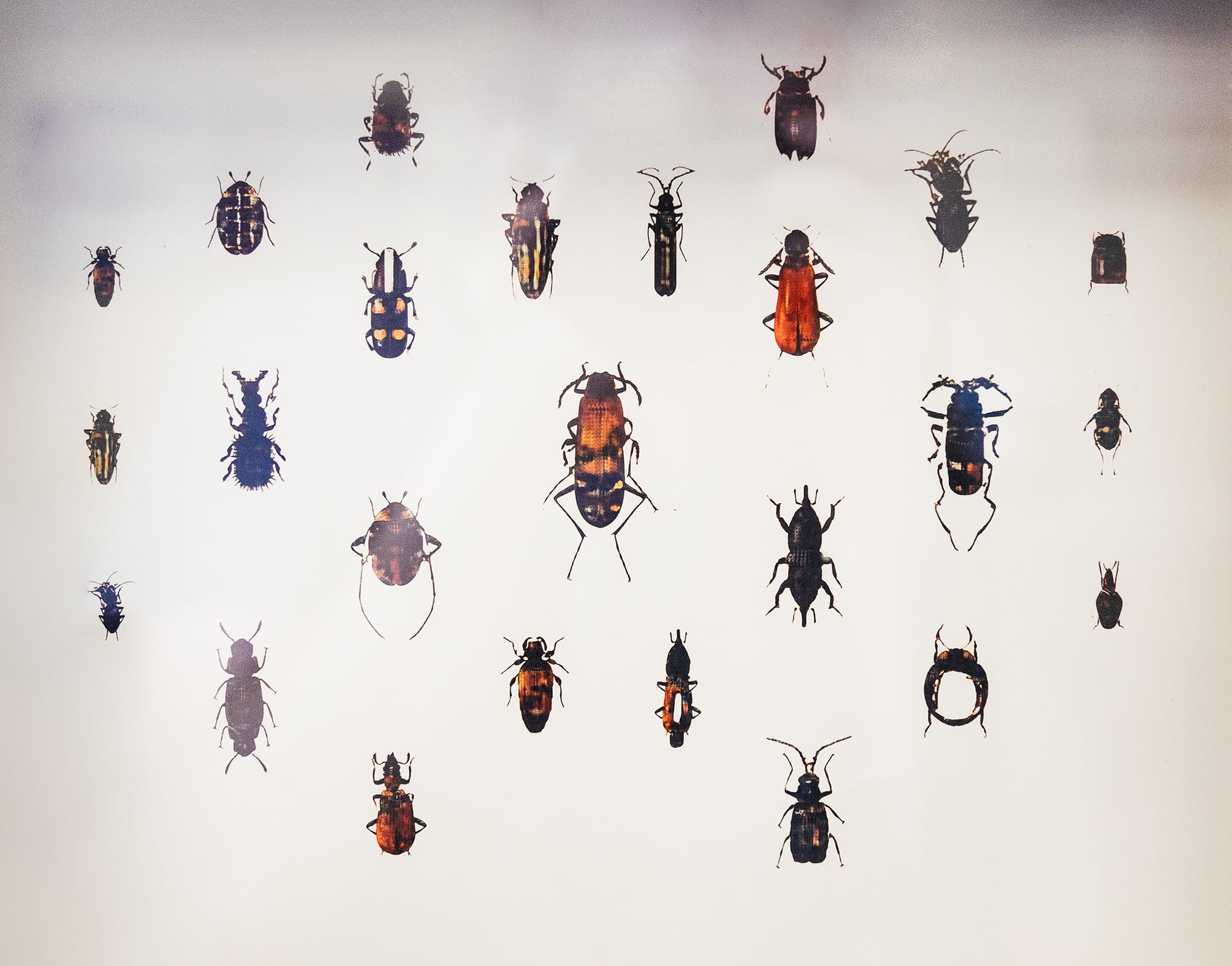In her most recent photobook, Let Me Fall Again, photographer and bookmaker Julia Borissova presents a part-factual, part-imagined construction of the life of Charles Leroux, a professional jumper.
The Uniqueness of Human Crying: An Interview with Ad Vingerhoets
Ad Vingerhoets is a professor in Social and Behavioral Sciences at Tilburg University, with expertise in the areas of stress, emotions, and quality of life. What he’s famous for, though, is crying. A phenomenon unique to humans, weeping — that is to say, tearful, emotional crying — is one of his special interests.
You ask the question “Why do only humans weep?” Why do you think human crying is so significant?
It might be significant because it can teach us something about human nature. It teaches us about who we really are, especially about what has been described as our ‘ultra-social’ capacity. My hypothesis is that there is a link between our capacity to cry and these ultra-social skills.
What does that mean, ultra-social?
Well, in terms of the animal kingdom, we are quite exceptional in our care for the handicapped, the disabled, and the elderly. And our empathic skills are relatively impressive compared to most other animal species. I especially should not overlook our unique capacity to collaborate with others, which has contributed significantly to what we have achieved as humans.
Tell me more about what you mean by ‘crying’. Just to clarify, we’re not talking only about tears, right?
No, although tears are the very specific behavior that is unique to humans. What we share with other mammals are what we call the ‘separation calls’ or ‘distress calls’ — if you separate the offspring, the infant, from the mother, they start making noises. And we assume that this is similar to our ‘vocal crying’.
In addition, compared to most other animals, humans also have very sophisticated developed facial musculature that we can use to express nearly all emotions. With these facial muscles, we can express anger, we can express disgust, we can express happiness — whatever you like.
But, what’s rather unique for humans is that we additionally produce emotional tears. And, blushing is also quite a unique feature to humans.
Seneca the philosopher once said: “What need is there to weep over parts of life? The whole of it calls for tears.” Considering we are the only species that emotionally cries, and also the only species that has philosophers, perhaps these are related? Is our emotional uniqueness tied to our consciousness?
Yes, to our cognitive abilities, I think. More generally, there’s quite a close connection between emotions and cognition. Emotions are never caused by external events but rather by how we appraise certain events. When we are exposed to an event, then we appraise the situation: is it important for us or not? If it’s not important for us, it will not induce any emotion. And if it’s important, is it positive or negative? If it’s negative, is it a challenge or is it a loss? What’s also important is: who has caused the event? For example, if something dramatic happens and I feel that I have caused it myself, then I’ll feel guilty. If I have the feeling that my neighbor has caused it, then I will get angry at him. And if I feel like it’s just fate, then probably I feel sadness or acceptance. So depending on who or what you blame for a certain event, that assessment will already have a major impact on your emotions.
And, that appraisal of determining who is at fault is itself an effort of cognition.
Yes. And, the idea is that crying is important when we feel helpless. In other words, when both our behavior and our cognitive capacity have failed to deal with a certain problem.
You argue that adult crying appears to be based on biological, psychological, and social factors rather than reflexes. It sounds surprisingly complex for something so common.
I’m convinced that crying indeed is a behavior. It’s not a reflex-like symptom. We are more in control of our crying than we are aware of. We can also see that if we simply compare cultures. There are cultures or periods in history when people cried much more than we do now, and probably we now cry more than we did 30–40 years ago. It’s not just a reflex.
What other cultural factors influence crying?
The antecedents — what makes us cry. One rather remarkable phenomenon, which is absolutely unknown to those of us in the West, is a tribal greeting ceremony associated with shedding tears. So, rather than shaking hands, people start crying. In some cultures, communal crying is still done: people cry together, probably because they want to promote their social connectedness. There are several reasons for this, for example, when tribes prepare for war or after they have experienced a disaster, so exactly when there is a need for social bonding. It seems that crying together, singing together, and praying together have much in common.
There’s also the cultural inclination to see adult crying as an expression of weakness.
Yes, that’s also an important cultural issue I think. Although it’s surprising, if you look at heroes throughout the ages, heroes are allowed to cry and it does not have a negative effect on their image. But they always have good reasons to cry — there are significant losses, or losses of significant others on the battlefield. So I think that that’s a very important factor: how appropriate is it to cry.
The prototypical situations for crying are bereavement, romantic breakups and homesickness. These are considered appropriate reasons for crying. In such cases, there are hardly any associations with weaknesses. Rather, weakness is perceived in situations where people are uncertain about the reason for the crying.
Why is it evidently so important to a culture to regulate the appropriateness of crying?
More generally, cultures all have what we call ‘display rules’. These are implicit or explicit rules on how to express yourself, and in which kinds of situations you are expected to express your feelings, because that’s the prescribed behavior, and in other situations, you are expected not to express or rather, not to cry.
I think, by the way, that when you compare cultures, it’s very important to make a distinction between crying in a private setting and crying in a public setting. Most crying occurs when no one else is present, or just your romantic partner or your mother, between 6pm and 10pm when you’re safe at home. If you focus on crying in private, then I think there isn’t much difference between crying between cultures. But the differences between the way cultures view crying manifest themselves especially in public settings, during ceremonies, rituals, funerals, that kind of situation.
You hypothesize that crying developed mainly as a social trigger for empathy. If that’s the case, why do we cry also when we’re alone?
Well, the first thing to consider is whether we are really alone when we cry. It may be that there’s another present, maybe a dog, or even a symbolic other, like God, or maybe people have a picture or a letter of someone. That’s one answer. But apart from that, I think that if you really experience an emotion, then you express it.
If someone calls you, and he tells you something that makes you angry, then there might be not too big of a difference in the expression in your anger when you are on a call with that person or when you are in a face-to-face situation.
So, for example, if our reaction to someone else is the antecedent for the crying, then their actual presence may not be relevant, but rather —
Often! Often it’s the absence, not the presence.
You mention in your research that we cry most often for quite mundane situations — sentimental movies, minor conflicts, criticism, smaller failures. Is it not strange that we haven’t, as a species, learned to deal better with day-to-day situations — or is it the opposite, that crying is in fact our solution?
It’s part of a solution because, well, these are situations where we badly need support from others, or we hope that others become less aggressive in a conflict situation, so it seems to be quite a practical reaction.
When it comes to crying, physical pain as an antecedent loses importance with age, but feelings of loss and powerlessness evidently remain important for crying throughout the lifespan. What do you suppose this says about the way we in which we experience emotional pain versus physical pain?
I think this emphasizes once again that we are social beings, and that social isolation is extremely stressful for us. Several years ago, there was research that showed that, at our brain level, there is an overlap between the structures that are involved in physical pain and those that are involved in emotional pain. So, if you isolate someone or reject someone, and that guy says, “you hurt me”, that can be taken literally, on the brain level.
You also research tears of joy, elation, or gratitude. Tell us more about that — why do we cry when we’re happy?
According to one theory, we actually never cry because of positive reasons, but once we experience this positive emotions, we also create room to reflect on negative aspects of the situation. I think that an example may help to illustrate that. We had, here in The Netherlands, a famous horsewoman, Anky van Grunsven, who won a gold medal several years ago at the Olympic games. She cried quite a lot when she received the gold medal, and they asked her, “Why did you cry, were you happy?” And she said: “No, my father passed away two months ago, and I cry because he is not able to witness this very important event for me.”
Another way of looking at it is that tears are associated with helplessness, and you could say that you can also be really overwhelmed by positive emotions, which is also a kind of helplessness — you don’t know how to express yourself — so you cry. So, that’s two ways to look at positive tears, but in this, you do not cry for positive reasons.
That’s kind of a depressing answer.
There is a recent theory about positive tears, which also suggests that they might be helpful to promote social bonding and stimulate pro-social behavior. I think that you may further consider it as a kind of feedback to yourself: apparently this is something that is important to me. Initially, these tears come very unexpectedly, but afterwards, you start to realize that it’s an important signal. So, whereas ‘negative’ tears are predominantly a signal to others that expresses a strong need for help and comfort, ‘positive’ tears, first and foremost, are a signal to ourselves — what I see now or experience now that moves me, that is important for me. These tears are exclamation marks!
And by the way, there was an emotional philosopher who has written about these sentimental reactions, and he said that generally we do not appreciate them, we consider these reactions camp, and we associate it with lower cultural products, like B-movies and country western music and so on. But if you look at the themes — altruism, self-sacrifice, eternal love, good overcoming bad and so on — they are very important issues and values for society. Virtues.
So it’s about our connection with those grand human emotions.
Yes, and morality and social functioning. Really major virtues.
Well, if they’re related to social functions, and we react in a profound social way, that makes sense.
Yep. So you’re a bit happier with this ending?
I don’t know… I’ll try not to cry about it.
Originally published on the TedxAmsterdam website. Watch his TEDxAmsterdam talk (November 2015).



